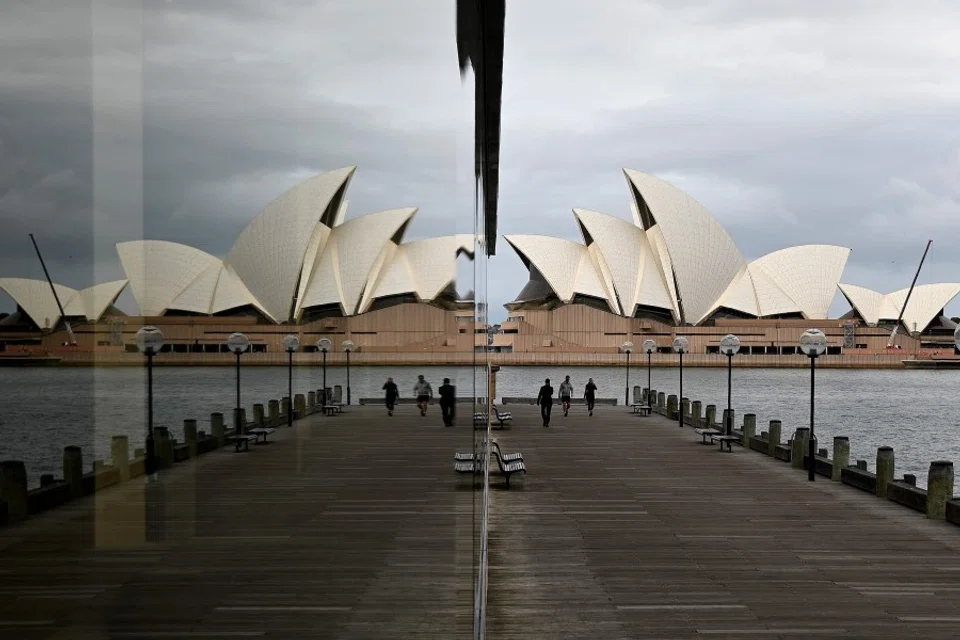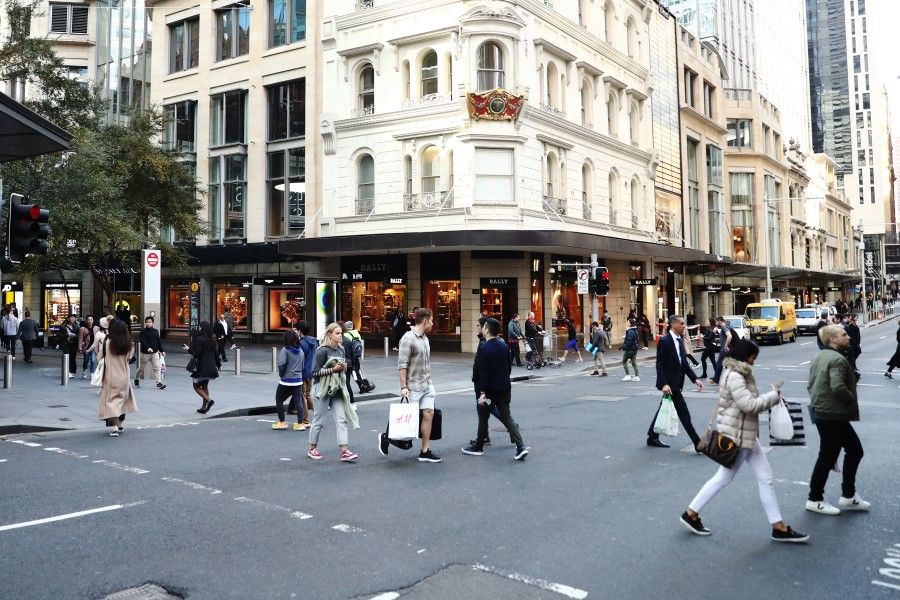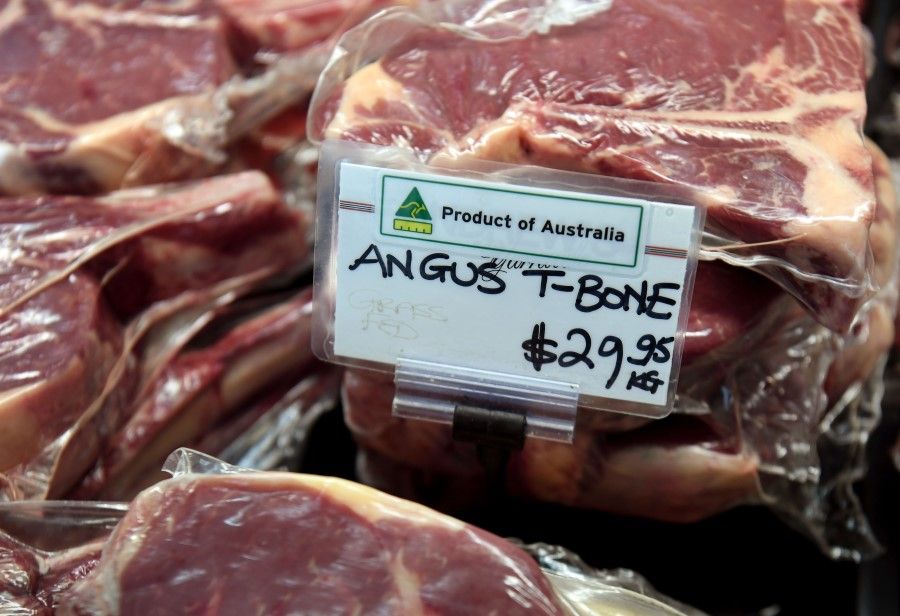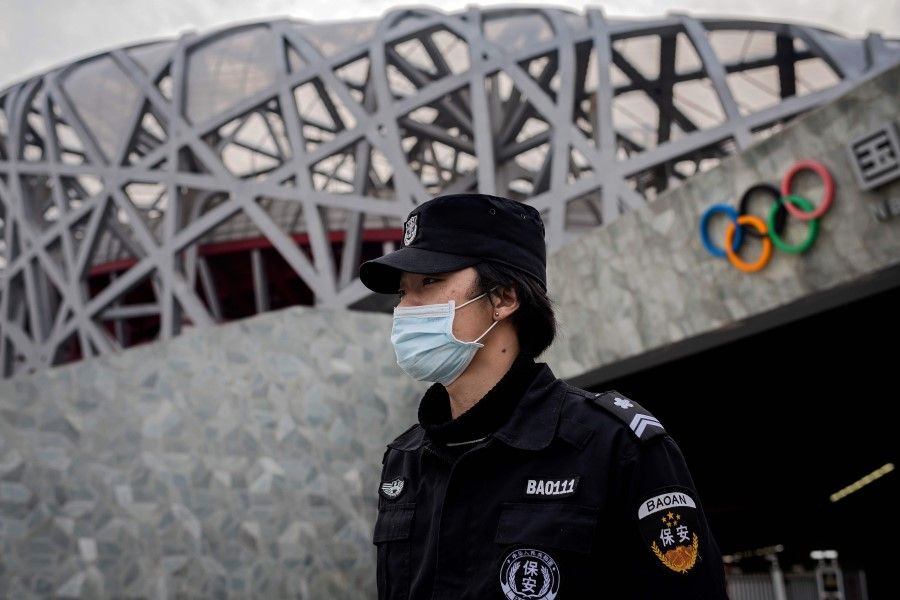China-Australia relations: Downward spiral as Australia plays 'deputy sheriff' to the US?

Tensions between Australia and China have been mounting on a number of fronts recently, surprising many observers. What has gone wrong in Australia-China relations? Why are Australia and China unhappy with each other? Is deterioration of the bilateral relationship associated with China's "wolf-warrior diplomacy"? By imposing economic and travel restrictions on Australia, is China "killing the chicken to scare the monkey" in its foreign relations?
Chinese investments and contracts in Australia between 2005 and 2019 came up to US$115 billion.
Australia and China have had a dynamic and largely friendly relationship since establishing diplomatic ties in 1972. China has been Australia's largest trading partner since 2007 and its largest export market since 2009. Australia has been one of the most favoured destinations of Chinese students and tourists. According to the American Enterprise Institute based in Washington DC, Chinese investments and contracts in Australia between 2005 and 2019 came up to US$115 billion.
The relationship peaked in 2014, when the two countries reached a free trade agreement. In the same year, Chinese leader Xi Jinping visited Australia and addressed a joint session of the Australian Parliament, praising Australia as a "country of dynamism and innovation". In a public opinion poll conducted by Lowy Institute in 2015, 77% of Australians view China as more of an economic partner than a military threat with only 15% seeing it as more of a military threat.
Australia became one of the firmest critics of China's claim to the South China Sea.

Beginning of a dip in China-Australia relations
However, relations began to deteriorate in 2016. After a July 2016 ruling by the Permanent Court of Arbitration against China in the Philippines-China dispute, Australia issued a joint statement with the US and Japan calling for China to abide by the ruling. Australia became one of the firmest critics of China's claim to the South China Sea. In response, China's nationalistic tabloid Global Times denounced Australia as a "paper cat" with an "inglorious history".
As China's investment increases and its influence grows in Australia, some Australians have become alarmed and uneasy. In 2017, Australian media reported alleged Chinese activities to influence Australian politics. To hit back at China over its suspected interference, then Prime Minister Malcolm Turnbull declared in Mandarin "Aodaliya renmin zhan qilai" (The Australian people stand up), invoking a famous slogan by Mao Zedong in 1949 when he claimed that the founding of the new People's Republic signified the Chinese people's victory over Western imperialists after a century of humiliation.
Despite China's displeasure, a poll conducted for The Australian newspaper in early June suggests that 79% of Australians back a global coronavirus investigation.
Australian news network Nine asserted in 2019 that a suspected Chinese espionage ring approached a Chinese-Australian man to run as a member of parliament. The man died unexpectedly and the official investigation was inconclusive, but the case prompted the Australian government to launch a high-level intelligence task force to combat the so-called "rampant foreign interference" in the country. Also in 2019, Australia signed a letter with a group of other Western countries condemning China's mistreatment of the Uighurs and other minority groups, urging the Chinese government to close the Xinjiang re-education camps.
Covid-19 heightens tensions
In April 2020, Australia became the first Western country to call for an independent inquiry into the origins of the coronavirus. In response, China accused Australia of playing "petty tricks" and Chinese ambassador to Australia Cheng Jingye threatened to boycott Australian products such as beef and wine, which Australian Trade Minister Simon Birmingham called "economic coercion". Despite China's displeasure, a poll conducted for The Australian newspaper in early June suggests that 79% of Australians back a global coronavirus investigation.

In May, China announced the five-year anti-dumping and anti-subsidy tariffs totaling over 80% on Australian barley, a top Australian agricultural export. China also imposed an import ban on four Australian abattoirs, which account for about 35% of Australian's beef exports to China. In June, China's Culture and Tourism Ministry advised against travel to Australia. According to the Chinese Foreign Ministry, there has been "a lot of discrimination" against Chinese people in Australia due to increasing racism linked to Covid-19.
While Australians are complaining about China's assertive diplomacy, the Chinese are wondering why Australia is actively participating in the Trump administration's anti-China scheme and willing to jeopardise its economic and other interests with China.
From China's perspective, today's Australia is bent on confronting China and supporting America's combative stance toward China. As a result, it is impossible to conduct business as usual with Australia.
Australia has been consistent in criticising China's human rights record, but China has a long list of complaints about Australia recently. The list includes the Australian navy joining the US navy in conducting military exercises in the South China Sea; Australia's ban of Huawei from its nascent 5G broadband network; and its passage of tougher rules to scrutinise foreign investment, particularly from China, over "national security" concerns.
Further to Beijing's disappointment, Australia endorsed a statement together with the US, UK and Canada scolding Beijing over a proposed national security law in Hong Kong, and two Australian members of parliament - Andrew Hastie and Kimberley Kitching -joined hawkish US Republican senator Marco Rubio and others in launching the Inter-Parliamentary Alliance on China, a multilateral group of parliamentarians highly critical of China. From China's perspective, today's Australia is bent on confronting China and supporting America's combative stance toward China. As a result, it is impossible to conduct business as usual with Australia.

A lot of unpleasant things are happening to China lately. This trend must be stopped, reasons Beijing. Beijing's rebuff of Canberra is a clear message to Australia: Don't follow the Trump administration too closely and make China-Australia relations difficult.
Australia and the perils of playing "deputy sheriff"?
China's more aggressive diplomatic approach started around 2010 when its GDP surpassed Japan's and after Beijing successfully hosted the 2008 Summer Olympics - both are significant milestones that boosted Chinese nationalism. In the past decade, there had been some internal debates in China about whether China should stick to Deng Xiaoping's "taoguang yanghui" (keeping a low profile) strategy and keep a low profile in international affairs. Cooler-headed scholars and officials who had urged caution in China's foreign policy were eventually outnumbered. With "wolf-warrior diplomacy" happening now, Chinese diplomats are more vocal and forceful in their defence of Chinese policies and in their attack of foreign countries deemed tough to China.

People often joke about Australia's role as America's "deputy sheriff". Other US allies such as Germany and South Korea have taken a more balanced approach toward China. For example, German Foreign Minister Heiko Maas has noted that China is Germany's largest trading partner and an emerging superpower. Germany does not want US-China tensions to become "irreconcilable" and will help resolve them. According to a statement released by the Chinese foreign ministry after a phone call between President Xi Jinping and German Chancellor Angela Merkel on 3 June, the latter said Germany is willing to strengthen exchanges with China and continue to support the WHO playing its important role. In addition, Germany stands ready for dialogue and wide-ranging cooperation with China, and will work with China to advance the bilateral and EU-China agenda and take forward the relationships.
Australia, as well as the US, must accept the reality of China's rise and be prepared to face challenges associated with power transition in the Asia-Pacific region.
In July 1971, an Australian opposition leader, Gough Whitlam, visited China, a few days before Henry Kissinger's secret mission to China that paved the way for President Richard Nixon's historic visit the following year. In December 1972, after Whitlam's victory in the federal election, Australia moved ahead to establish diplomatic relations with China, again before the US, which did so in 1979. Today, Australia seems less independent of the US in foreign policy and its leaders are facing more pressures from Washington in the growing US-China rivalry.
As allies, the US and Australia share core values, and the US's security protection is indispensable for Australia. On the other hand, China is instrumental to Australia's economic well-being. Australia, as well as the US, must accept the reality of China's rise and be prepared to face challenges associated with power transition in the Asia-Pacific region. Most importantly, Australia must balance its relations with both powers. As Prime Minister Scott Morrison has said, Australia need not choose between China and the US. However, commentators have also noted that American officials have pushed Australia's leaders to go up against China more directly, putting Australia in an awkward position.
It is such grassroots dynamics that will help overcome difficulties and move the Australia-China relationship forward.
China must recognise that Australia is not the only country that is concerned about its rapid rise and its assertive policies. China should not punch beyond its weight. Premier Li Keqiang reminded everyone during the recently concluded National People's Congress, China is still a large developing nation with nearly half of its population having a monthly disposable income of 1,000 RMB only. As it faces an increasingly more hostile international environment following the outbreak of Covid-19, China should ask: Does creating enemies, especially in the West, serve its national interest?
Policymakers in Australia and China are understandably frustrated with the strained relationship. They should step back and reflect on what brought the two countries together in the past and what binds the two societies today. There is still hope. Chinese students are likely to continue to flock to Australia, especially after the Trump administration has set barriers for them to study in the US. Local governments such as the state of Victoria under the leadership of premier Daniel Andrews want to expand trade with China and join the Belt and Road Initiative despite pressures from the federal government. Exchanges at the local level provide a venue for the two sides to refocus on areas where they can cooperate and benefit from. It is such grassroots dynamics that will help overcome difficulties and move the Australia-China relationship forward.
Editor's note:
China-Australia relations suffered a fresh blow last week as a Chinese court sentenced an Australian man Karm Gilespie to death on drug-smuggling charges. Chinese state media said Gilespie was arrested on New Year's Eve in 2013 at Guangzhou Baiyun Airport with more than 7.5 kg of methamphetamine in his checked luggage. On 15 June, Australia's Prime Minister Scott Morrison said that the Australians have raised this case with the Chinese side several times. Both Chinese and Australian officials have avoided associating the case with deteriorating relations between the two countries.
Related: 'Wolf-warrior diplomacy': China's new normal? | Chewing gum on the sole of China's shoes? Australia-China relations take a nosedive | Missouri sues, but should China be held accountable for the global spread of Covid-19? | 600 million Chinese earn 1,000 RMB a month - so are the Chinese rich or poor?
